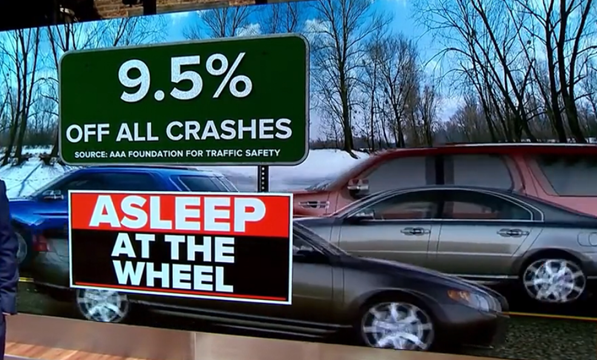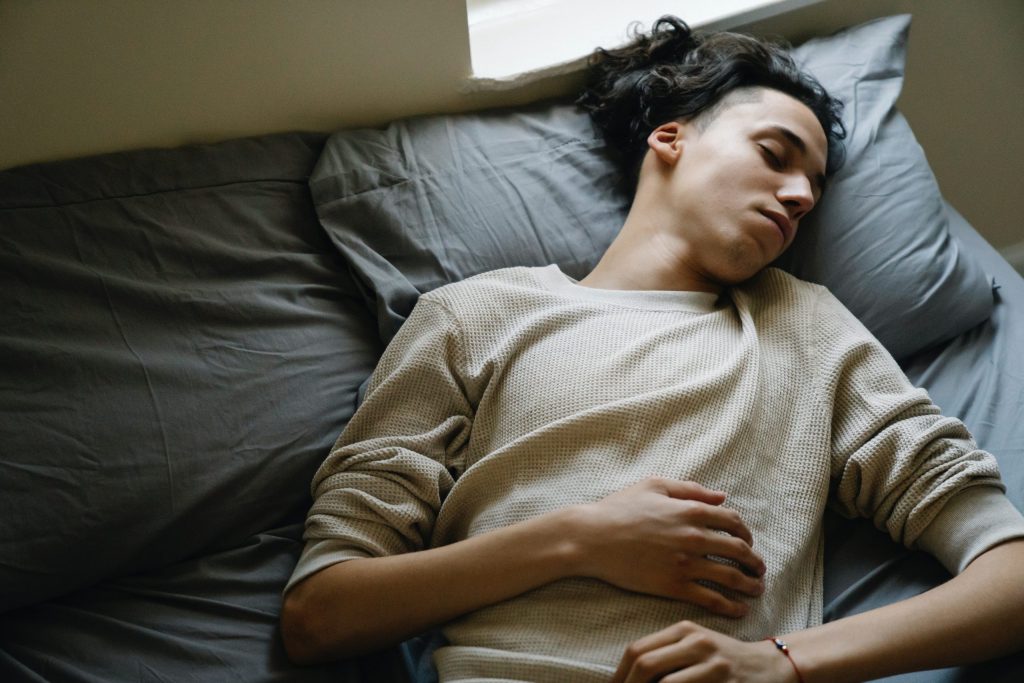Lesson One: Drowsy Driving (8.1)
Sleep is an essential function that allows our bodies and minds to recharge and refresh. Our brains need to rest so that they can function properly. Sleep plays a crucial role in memory, helping you retain what you learned at work or school for later use.
 Drowsy Driving
Drowsy Driving

Sleep deprivation leads to impaired driving and can be incredibly dangerous. Driving while sleepy impairs your driving performance as much as alcohol, studies show. Sleepiness slows reaction time, decreases awareness, and impairs judgment. Statistically, the collision rate of fatigued drivers is quickly catching up with the rate of drunk drivers. Being awake for 18 hours is equal to a blood alcohol concentration (BAC) of 0.08%, which is impaired. Research has identified young males under 25, shift workers, commercial drivers and people with short-term or chronic sleep deprivation as being at increased risk for having a fall-asleep crash.
Some signs that you may be too drowsy to drive are:
- Difficulty focusing, frequent blinking
- Daydreaming, mind wandering
- Micro sleeps; trouble remembering the last few miles driven; missing exits or traffic signs
- Yawning repeatedly or rubbing your eyes
- Drifting from your lane, tailgating, or driving on rumble strip
Get a good night’s sleep. While requirements vary, sleep experts recommend between 7-9 hours of sleep per night for adults and 8 1/2-9 1/2 for teens.
Tips for Healthy Sleep Habits
- Turn off your phones or tablets. The blue light emitted from the screen disrupts your circadian rhythm.
- Avoid heavy meals and caffeine in the afternoon and evenings
- Limit high impact activities before sleep hours
- Have a consistent bed time
Pay attention to and do not ignore your body’s signs of drowsiness. If you find yourself on the road and feeling sleepy, take a 15–20-minute power nap (look for a rest area or a well-lit parking lot) or a quick walk. Drink a caffeinated beverage and try to schedule driving during hours that you are normally awake. The actions have shown to give you about 3 additional hours of feeling less drowsy but are not a substitute for sleep.
Passengers can be a good alternative to take over the driving task, but it is crucial to confirm that the passenger is fully awake. If they just woke up from a nap, they may some time to regain their alertness.
Essential Question
-
What are the effects of drowsy driving?
